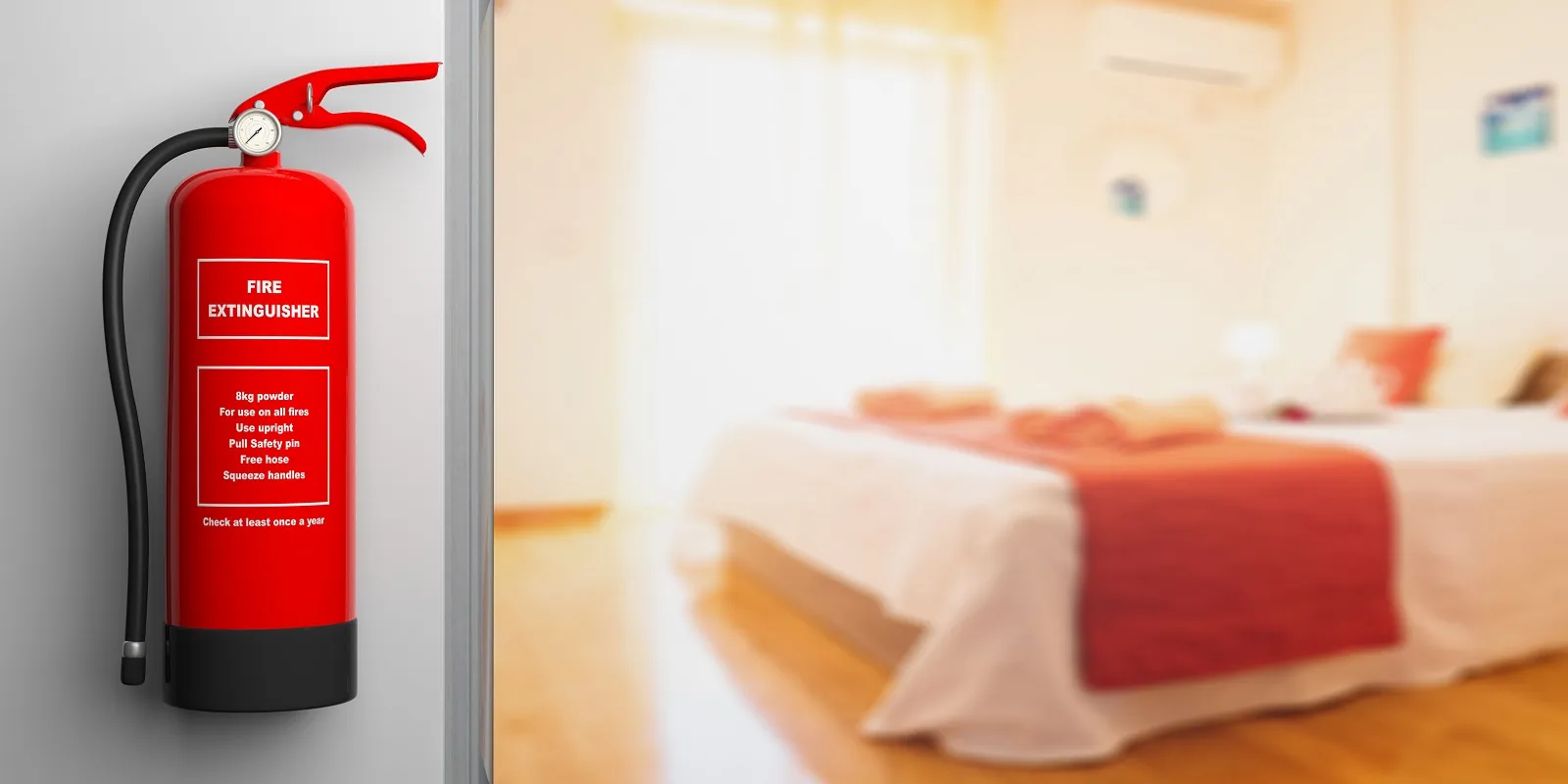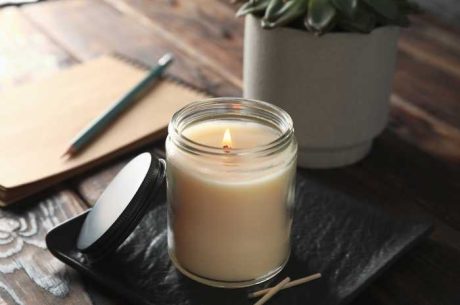Fires are one of the most common disasters in the country. According to the National Fire Protection Agency (NFPA), there were 499,000 structure fires in the United States in 2018. These fires resulted in 3,665 civilian deaths, 15,200 civilian injuries, and $11.1 billion in property damage. Take personal responsibility and prepare long before a fire threatens your home and your family’s safety. Sit down with your family and review this home fire safety checklist:
Home Fire Safety Checklist
Smoke and carbon monoxide alarms
- Install smoke alarms and carbon monoxide detectors outside of every sleep area and on every level of the home, including the basement.
- Interconnect all smoke alarms throughout the home. This way, when one sounds, they all do.
- Test alarms monthly by pushing the test button.
- Change batteries twice a year (during Daylight Saving Time).
- Replace all smoke alarms when they are 10 years old — or sooner if they don’t respond properly.
- Everyone in the home must recognize the sound of the smoke alarm and understand what to do when they hear it.
Fire extinguishers
- Know where your fire extinguishers are mounted, and make sure everyone in the family knows how to use them.
- Place fire extinguishers on every level of the home and close to exits.
- Choose a multi-purpose fire extinguisher for your home. It should have the label of an independent testing laboratory.
- Fire extinguishers are not for putting out large fires. Use them for small fires in confined areas only.
Fire escape plan
- Create a fire escape plan with the whole family.
- Establish two escape routes from each bedroom.
- Designate a meeting spot outside the home.
- Ensure that all family members know how to contact each other in case of an emergency.
- Every household member should learn the stop, drop, and roll technique in case their clothes catch fire.
- Practice the plan with your family.
Kitchen
- The kitchen is where most home fires start.
- Never leave the oven or stove unattended when cooking.
- Stay alert and sober while cooking and turn off the cooking appliance if you must leave the kitchen.
- Avoid wearing loose clothes and roll up your sleeves when cooking.
- Remove stove knobs to prevent pets from starting fires.
Smoking
- Smokers should take it outside and choose fire-safe cigarettes.
- Never smoke in bed or when feeling drowsy.
- Use big ashtrays and dip cigar butts in water before disposal.
- Always put cigarettes out completely.
- Never discard cigarettes in vegetation.
Candles
- Never leave candles unattended – extinguish them when you leave the room or go to bed.
- Burn candles in sturdy candle holders and place them on horizontal, stable, and heat-resistant surfaces.
- Use candles in a well-ventilated area. However, don’t burn candles in rooms with strong air currents to avoid uneven burning and flame flare-ups.
- Avoid using candles when the power is out. Use battery-operated flashlights instead.
- Keep lit candles at least three inches apart so that they won’t melt one another.
Children
- Keep matches and lighters out of children’s reach and teach them about fire safety.
- Store matches and lighters in a secure drawer or cabinet.
- Avoid using matches or lighters in front of children, as they often imitate what others are doing.
- If you suspect that a child is playing with fire, check under beds and in closets for signs like burned matches.
- Ensure children don’t touch operating space heaters or put anything on them to avoid scalds and potential fires.
Fireplaces
- Have your chimney inspected and cleaned by a professional every year. If needed, they will remove creosote or other obstructions, such as animal nests, from the chimney.
- Keep any flammable objects at least two feet away from the fireplace.
- Use only dry, seasoned wood that’s been cut to the correct length.
- Have a mesh metal screen or fire screen installed to prevent embers from shooting out of the fireplace.
- Always supervise the fire and never leave it burning when going to sleep or leaving the home.
Space heaters
- Always supervise electric heaters while operating and unplug them when leaving the room or going to sleep.
- Place heaters on a stable, horizontal surface.
- Regularly check that the cord, plug, and wall outlet are not hot. If they are hot, unplug the heater immediately and have it checked by a professional.
- Place heaters on a stable, horizontal surface where it can’t be knocked over easily.
Electrical safety
- Have the electrical wiring in your home checked.
- Replace frayed or damaged cords or wires and make sure cords are not run under carpets or rugs.
- Don’t overload extension cords or outlets. Plug large appliances directly into wall sockets.
- Install circuit breakers (GFCIs and AFCIs) in your home to help prevent electrical fires.
Garage
- Store combustible substances, such as gasoline, in a container designed for that purpose.
- Keep the containers outside the home in a detached garage or lawn shed.
- Keep flammable items on high shelves and away from heat sources.
- Don’t use carpets, rugs, non-fire-retardant tarps or cardboard in the garage.
- If you spill gasoline, soak it up with sawdust or cat litter. Throw the sawdust or cat litter in a safe container after the spill is fully absorbed.
- Avoid storing old mattresses in the home, attic or garage.
Home fire safety checklist bonus tips:
- How to Avoid Fire Hazards in the Bedroom
- Tips to Prevent and Handle Grease Fires
- How to Keep Your Basement Safe from Fire
- How to Keep Your Backyard Safe from Fire
- Appliance Fire Safety Tips
- Dishwasher Fire Safety Guidelines
- Stove Top and Oven Fire Safety Tips
- Facts about Home Fire Sprinklers
- Fire Safety Preparation for Babysitters
- Avoid Water and Fire Disasters with These Smart Home Devices
- Fire Safety Tips for People with Disabilities
- Childproof Your Home – Protect Your Kids from Fires and Burns
- Fire Drills – Teach Your Kids a Skill They Can Take with Them for Life
- Sleepover Fire Safety For Kids
- Winter Fire Safety Tips
- Fire Safety Tips for the Holidays
- Christmas Tree Fire Safety Tips
- Be Proactive in Preventing Chimney Fires
- Have a Safe Thanksgiving with These Fire Prevention Tips
- Fire Safety Tips for Your Home During the Fall Season
- How to Safely Store and Handle Fireworks
- Spring Cleaning? Remember These Fire Safety Tips
- Apartment Fire Safety Tips
- Fire Safety Rules for Outdoor Parties
- 5 Unexpected Home Fire Causes
- 5 House Fire Myths Debunked
- Home Fire Safety for Older Adults
- How to Stay Safe During a Wildfire
- Portable Fireplace Safety Tips
- Clothes Dryer Fire Safety Tips
- Vehicle Fire Safety Tips
- The Do’s and Don’ts of Outdoor Grilling
While it is crucial to be cautious of fire hazards year-round, taking the time to walk through this home fire safety checklist at least once a year could save you and your family’s life. When a fire happens, there is no more time for planning. Act today, be prepared!
For fire & smoke damage restoration, contact our mitigation experts!
In the unfortunate event that your home suffers fire damage, contact your insurance agent immediately. For professional fire damage repair or smoke remediation services, contact your local PuroClean office.




